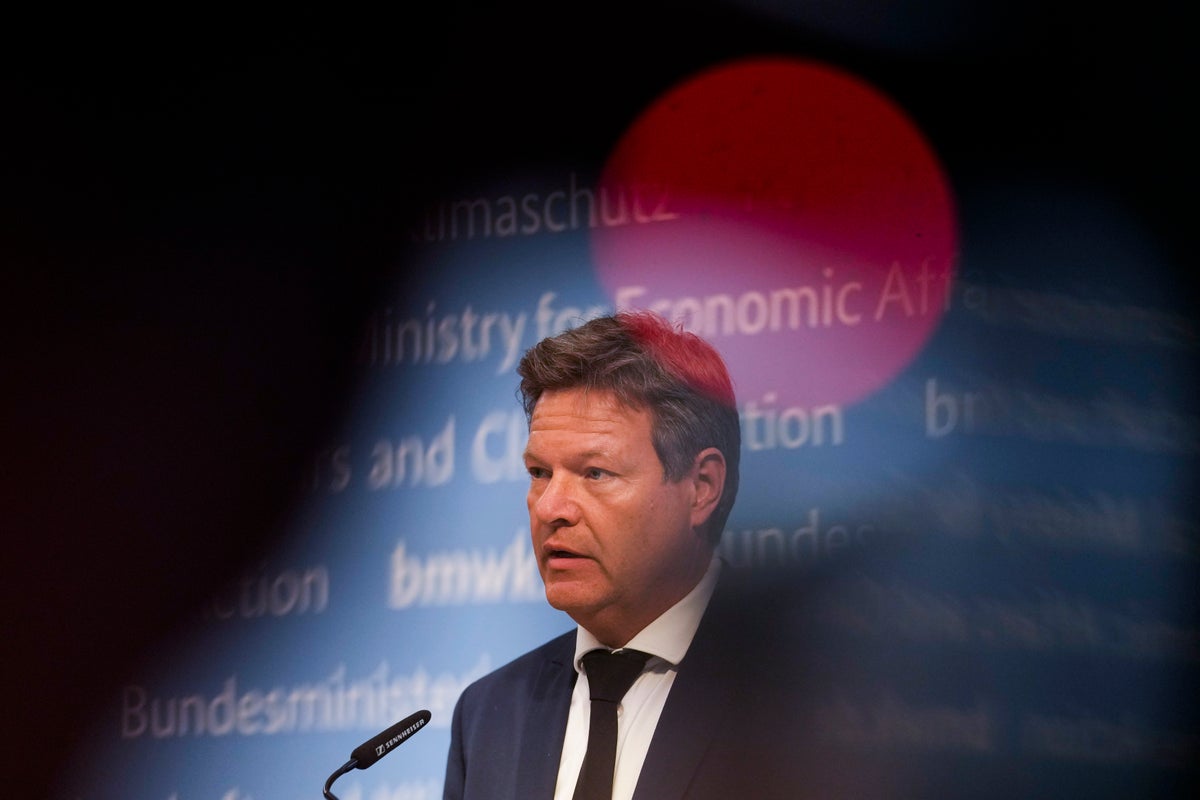
Germany activated the second phase of its three-stage emergency plan for natural gas supplies Thursday, saying Europe's biggest economy faces a “crisis” and warning that storage targets for the winter are at risk due to dwindling deliveries from Russia.
The government said the decision to raise the level to “alarm” follows the cuts to Russian gas flows made since June 14 and surging energy prices exacerbated by the war in Ukraine. The third and highest stage is the “emergency” level.
“The situation is serious, and winter will come,” Economy Minister Robert Habeck said in a statement.
“The reduction in gas supplies is an economic attack on us by (Russian President Vladimir) Putin,” he said. “We will defend ourselves against this. But our country is going to have to go down a stony path now.”
Russia last week reduced gas flows to Germany, Italy, Austria, the Czech Republic and Slovakia just as European Union countries are scrambling to refill storage of the fuel used to generate electricity, power industry and heat homes in the winter. Russia's state-owned energy giant Gazprom blamed a missing part sent to Canada for repairs for the cutbacks through the Nord Stream 1 pipeline running under the Baltic Sea to Germany — Europe’s major natural gas pipeline.
It comes on top of gas shutoffs to Poland, Bulgaria, Denmark, Finland, France and the Netherlands in recent weeks.
Germany's government said current gas demands are being met and its gas storage facilities are filled to 58% capacity — higher than at this time last year. But the goal of reaching 90% by December won’t be possible without further measures, it said.
“Even if we can’t feel it yet: we are in a gas crisis,” Habeck said.
He said Germany would not react to the situation by keeping all supplies it receives to itself and cutting off neighboring countries. Instead, the government was urging industry and residents in Germany to reduce their consumption as much as possible.
“The prices are already high, and we need to be prepared for further increases,” Habeck said. “This will affect industrial production and become a big burden for many producers.”
To reduce demand, the government plans to hold auctions that would see large industrial consumers receive money if they relinquish their contracts.
Since declaring the first phase of its emergency plan in March, Germany and other countries have been trying to get additional gas from European neighbors such as the Netherlands and Norway as well as liquefied natural gas from producers in the Gulf and further afield.
To the horror of environmentalists, the government also announced Sunday that it would increase the burning of more polluting coal and reduce gas use for electricity production.
The government said it had informed European partners of the move in advance.







